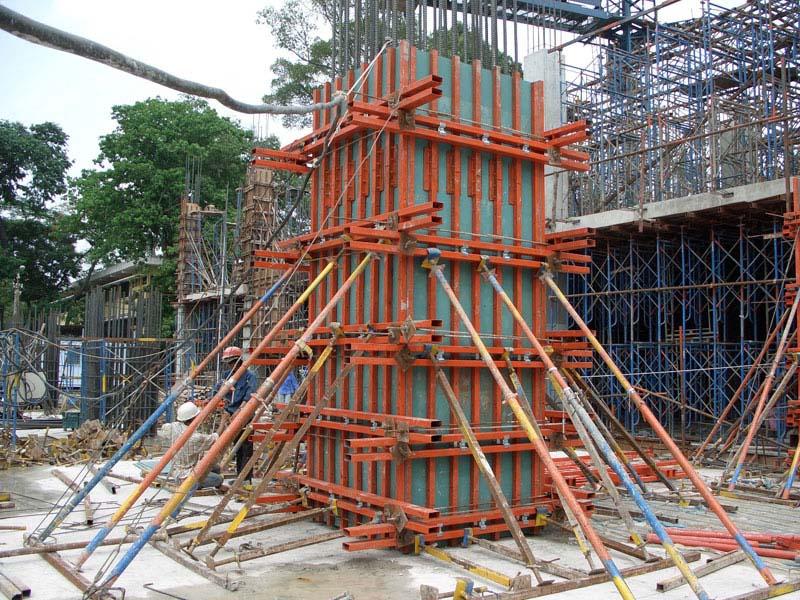Formwork is essentially a mold or frame used to support the wet concrete and shape it as it hardens. It ensures the concrete hardens in the desired architectural shape and maintains strength and stability until it gains sufficient strength to stand on its own. Formwork plays a critical role in all concrete construction projects from buildings, bridges, stadiums to industrial structures. South Africa has a thriving construction industry where formwork finds wide application.
Types of Formwork Commonly Used in South Africa
There are different types of formwork used based on the project requirements which include:
Timber formwork
Timber remains one of the most commonly used materials for South Africa Formwork. It is relatively cost-effective and quick to assemble and dismantle. However, timber formwork requires more maintenance and cannot be reused multiple times. It is suitable for simple geometric structures.
Aluminum formwork
Aluminum formwork systems are prefabricated and reusable making it more economical for large or complex projects. Being lightweight, aluminum formwork is easy to transport and assemble. It produces very good surface finishes and tolerances. However, the initial costs are higher than timber formwork.
Steel formwork
Steel forms are strong and durable forms that can be reused hundreds of times. They enable fast cycles and are suitable for very tall or heavy construction projects. Steel forms require substantial capital investment but pays off through lower material and labor costs over the long run. They are corrosion resistant.
Plastic formwork
Plastic or fiber-reinforced polymer facing sheets are lightweight and can be joined together faster than other materials. Being corrosion resistant, plastic forms last longer with minimal repair and maintenance. They are weather resistant and have good tolerance and surface finish. However, plastic forms have high initial costs.
Engineering and Manufacturing Hub for Formwork Systems
Several local companies in South Africa have emerged as engineering and manufacturing hubs for innovative and customizable formwork solutions. Some of the major players include:
ULMA Construction South Africa- A Basque country company with a strong presence across Africa. They offer comprehensive aluminum, steel and timber forms along with engineering services.
Peri Formwork Scaffolding- A German company with a global presence offering premium steel and aluminum formwork solutions. Their modular wall form systems are very popular.
MGS Formwork Systems- A leading local company producing aluminum forms along with scaffolding and formwork accessories for the construction industry.
Formwork Technologies- Specializes in custom steel forms for complex architectural concrete structures and civil projects. They also offer engineering design services.
Fischer Formwork Systems- Provides a wide range of formwork solutions from standard panels to engineered form travellers across South Africa.
These companies have played a pivotal role in executing many landmark infrastructure and construction projects in South Africa through innovative formwork technologies, engineering expertise and quick turnaround times.
Key Projects and Innovation
South African construction companies, engineers and contractors are at the forefront of leveraging new technologies and pushing boundaries with ambitious projects. Some of the major projects highlighting formwork expertise and innovation include:
Square Kilometre Array (SKA) – World’s largest radio telescope project being constructed in South Africa’s Karoo region. It required highly specialized steel and plastic formwork to achieve complex dish contours.
Cape Town Stadium – Formwork technologies enabled construction of curved concrete roof design in sections for this 2010 FIFA World Cup venue within a tight deadline.
ZABLSA Building – At 160m tall, it was South Africa’s tallest building at the time constructed using large steel form travellers supported by a tower crane.
Tribunal Towers – R record 18000m3 of concrete was pumped utilizing highly engineered formwork to construct these three 65-storey towers rapidly side by side.
Nelson Mandela Bridge – Aluminum form travellers and modular systems enabled very efficient construction of arch concrete deck sections for this longest cable-stayed bridge in Africa.
*Note:
1. Source: Coherent Market Insights, Public sources, Desk research
2. We have leveraged AI tools to mine information and compile it




